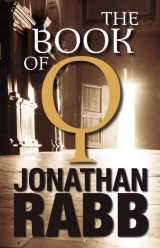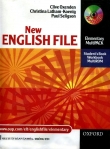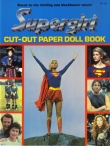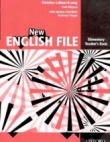
Текст книги "The Book of Q"
Автор книги: Jonathan Rabb
Жанр:
Триллеры
сообщить о нарушении
Текущая страница: 5 (всего у книги 28 страниц)
He knew it would be a long night.
Pearse had walked from the Colosseum, back to the Piazza Venezia, the Corso, the twin churches at the Piazza del Popolo, and finally the bridge out to the Vatican. Crossing at the Ponte Regina Margherita might have been a bit out of the way, but he’d always preferred the area just across the Tiber, the wide avenues and trees that reminded him so much of Paris. As much as he loved Rome, there always seemed to be a kind of heaviness to it. Maybe it was in his own mind. Paris just seemed a little lighter.
His thoughts, however, were not of Paris tonight. Perfect Light-the more he walked, the more it gnawed at him. Augustine had referred to it as a collection of Jesus’ sayings. By itself, Pearse knew that didn’t set the prayer apart from any number of fourth-century tracts. He’d heard of the various collections that had floated around, most inauthentic, each trying to assert some sort of connection to the Messiah, a way to validate one strain of a burgeoning religion over another. That the four Gospels had eventually won out had done little to diminish the quest for the true words of Christ. What so many believers didn’t realize-even now-and what Pearse himself all too often confronted in his own quest, was that the Gospels offered only a smattering of Jesus’ words, each of the books steeped in interpretation, colored by the historical necessities that had faced their authors. Matthew, Mark, Luke, John, each essential to the task of shaping the church and its dogma, but each too far removed from the spoken Word not to fall prey to inconsistencies. Ever since his days in Chicago with John J., Pearse had believed that to read Christ’s genuine teachings, to come face-to-face with their simplicity would clarify everything, remove all doubt, all uncertainty. A Sola Scripturaof his own. Faith at its most essential.
Something Petra had never fully understood.
Arriving at the Piazza del Risorgimento-rush-hour trams swallowing and spewing passengers by the dozens-he allowed himself a momentary flight of fancy. What if the prayer did connect to those words? What if the real Christ lay hidden somewhere within it? Freed from the structure that had engulfed them over the centuries, those ideas couldbreathe new life into a faith growing ever more static, distant. Ignite a genuine passion based on the purity of the Word.
As he stepped from the curb, however, an equally powerful thought entered his mind, brought on more by the events of the last few hours than by anything else…. It’s clearly important to someone. Important enough to take a man’s life. He had done his best to dismiss the possibility twenty minutes ago; now, he found it far more difficult. Could a scroll like that be seen as a threat-a single voice, Christ’s teachings made plain at last? How might that be received? he wondered. Not as an answer to the complacency, but as a shock to its very core. Here would be something to strip away the layers of exegesis that sat atop the parables, the Beatitudes, all the dogma that had grown out of the myriad attributions of meaning. Could such clarity actually appear dangerous, even the hint of it prompt someone within the church to suppress it-better to maintain the current structure than to upend it, no matter how true to Christ’s own insights the source of that clarity might be?
The real paradox of faith: Truth versus Structure. Pearse had to believe that the church was beyond such fears.
And yet, a man was dead.
He cut across the road and sidestepped his way through traffic, one or two angry horns spiriting him on his way. Once on safer ground, he moved along the sidewalk, the Vatican wall-sixty feet of weathered brown-gray stone and turrets-lowering above him; twenty yards down, he turned into the Santa Anna gate, an equally imposing archway, vigilanza-dressed in the customary blue tunics and capes-manning the gate. A few cars were making their way out-never more than a glance from the guards for those leaving, far more care with those trying to get in. Even so, the man nodded Pearse through, a token look at the Vatican passaportoof a familiar priest.
He might have felt a bit cheated by the world beyond the gate, so little in the way of real grandeur, but he never did. The affectations were reserved for the more public areas-the museums, St. Peter’s. Here, it was a collection of administrative buildings, post offices, loggia, the only truly regal sight the fifty-foot archway leading off to the library and beyond. Even that was in need of a good cleaning. But, unlike anywhere else in Rome-perhaps the world-Pearse felt a genuine sense of security within its walls, a safekeeping that ostentation could only mar. And with it, that sense of lightness seemingly unavailable to him in the rest of Rome.
It was why he’d accepted the offer of rooms on his arrival, why he’d petitioned for Vatican citizenship a year after that. Spiritual refuge. Genuine connection to the heart of the church. A taste of the certainty he so desperately craved.
Unfortunately, his choice had dramatically changed things with his family, talks with Jack and Andy less frequent, a sense that the priest was somehow now even more off-limits. His parents hadn’t quite known how to take it either, the final realization that their son was truly the church’s and not their own. He’d tried to convince them otherwise, but there really wasn’t much hope of that. Nor of any of them understanding what had prompted the move-that maybe, just maybe after all this time, Petra wouldn’t be able to follow him inside the Vatican walls.
Then again, maybe not.
Managing his way along the cobbled drive-still slick from the rain-he thought about picking up a few pieces of fruit, something sweet at the market, but he couldn’t muster the appetite. He remembered some cheese in his rooms. It would have to suffice. Stepping through another, more commonplace archway, he hurried across a stone courtyard before arriving at the entrance to his building.
Three flights and a corridor later, he turned his key and stepped into the two rooms that had been his home for the past few years.
Sofa, chairs, desk-cum-table greeted him as he kicked his shoes across the floor, two small windows on the far wall, neither of which-as far as he knew-having ever seen the sun. But there was always hope. He kept a plant atop the waist-high bookshelf between them just on the off chance a ray or two might creep in.
It was his eighth plant in two years.
Only at night did the light venture in, harsh, from somewhere above, enough to cast shadowed bars across the room from the rusted fire escape. Tonight was no exception. The slanted black lines were instantly erased as he flicked on a standing lamp. At the same time, he pulled off his collar-always the most relaxing moment of the day-and, stretching his neck, moved across the linoleum floor to the books. He crouched down and pulled several volumes out, placing them in a pile on the table just behind him. Perfect Light. Time to see how much he had remembered.
He pulled a ball from his glove on the floor and moved to the table. Sitting, he began to toss it back and forth between his hands. Always the best way to concentrate.
The first book was one of the red-bound volumes of the Corpus Scriptorum Ecclesiasticorum Latinorum, which contained Augustine’s anti-Manichaean works. Pearse recalled several references to the prayer appearing during Augustine’s own struggle with his faith. Long before he had decided to “take it and read,” the hero of Confessionshad wondered just how high the “true ascent” might actually take him. Those were the questions Pearse now scanned for, that sense of possibility so clearly felt by the young Augustine.
Much of the writing, though, concentrated on the Manichaean “Kingdom of Darkness,” a realm for which Augustine had shown a particular fascination: evil let loose, as arbitrary as it was overwhelming. For a moment, Pearse wondered if perhaps he’d seen it for himself firsthand, the descriptions all too reminiscent of his days in Bosnia. Maybe the Manichaeans deserved more credit than Augustine had given them.
Forty minutes later, he shut the last of the books, no further along than when he had started, every reference too vague, too uncertain in its own understanding of the prayer. For Augustine, “Perfect Light” had remained a mystery. And for a man with perhaps the keenest mind in the long history of the church, such an admission only strengthened the case for its power, the unfathomable as somehow closer to the divine.
Pearse laid the book on the floor-he’d made his way to the sofa after picking up a wedge of cheese between books-and now stretched out his legs. He began to toss the ball in the air, hoping that something would click. But there was no use fighting it. Within a few minutes, his eyes shut, the sofa infamous for its nap-inducing allure.
It was an hour later when the sound of ringing woke him. At first, he thought it was his alarm, convinced for a moment it was morning. When he realized he was on the sofa, he began to orient himself, slowly aware that it was the phone. Trying to focus, he squinted across the room, the light from above verging on the painful; he forced himself up and moved to the table. On the way, he turned off the lights so as to make things easier.
“Hello?” His voice was raspy.
“Ian.” It was Cesare, the sound of traffic in the background. Pearse could barely hear him. “You have to find it, take it.” A sudden intake of breath, coughing.
“Dante? Where are you? What’s going on?”
“Somehow … they came. They knew.” More coughing, the words short of breath. “They will change everything. Everything.”
“Who will change-” The blood drained from his face. “Dante, where areyou?”
“It’s still safe…. I didn’t tell them…. Still safe.”
A moment later, the line went dead.
two
Pearse took the steps two at a time, his hand chafing against the banister, Cesare’s words ringing in his ears: Still safe. Reaching the ground floor, he bolted out the door, nearly knocking over an ancient monk-a Jesuit, given his robes-the old man trying to make his way in. No time for apologies. Pearse sped off through the archway.
He had waited a good five minutes for Dante to call back, staring at the phone, convincing himself that it was nothing more than a wiring miscue. It had taken his full concentration not to let go entirely, his mind as yet unwilling to accept the obvious. They will change everything. They.
Once outside the Vatican walls, Pearse glanced longingly at the taxi rank just off of St. Peter’s Square. Not a cab in sight. The emergence of a bus rolling to a stop at the center of Piazza Risorgimento-its route taking it out toward Labicano-was enough, however, to propel him into high gear, his legs slipping along the pavement as he darted in and out of the tourists still making their way toward the basilica.
The last of the passengers was on board when Pearse sprang through the rear door, half the crowd within staring disapprovingly as he steadied himself against a near pole. The door slid shut, people continuing to look at him as the bus pulled out, Pearse only now aware that he had left without his collar. Instinctively, he brought his hand to his neck, smiling as best he could at the staring few.
Twenty-five minutes later, the bus pulled up across from Trajan’s Park; Pearse stepped to the curb. Trying to draw as little attention as possible, he hurried across the intersection before sidling his way along the raised median as cars barreled past him in both directions. Hopping the metal fence that separated the two sides, he slipped through a gap in the traffic and settled into a resolute pace along San Giovanni in Laterano, San Clemente quickly in his sights.
Inside, the empty nave stretched to the altar, cavernous without the afternoon’s chairs, strangely cool in the dank light, illuminated only by one or two overhead lamps. The permanent pews stood beyond the choir, thick black wood on stone, a single figure bent in prayer, another by the candles, eyes closed, peering up. Stillness, save for the sound of Pearse’s own footsteps as he moved across the open expanse toward the stairs he had climbed less than five hours ago; neither of the men seemed to notice him.
At the steps, he suddenly realized he had no light-understandable in all the excitement-but how could he expect to find his way through the tunnels without one? He was about to go back for an offering candle, when he noticed the lantern-his lantern-still on the second step. He took it as a good sign, picked it up, and started down.
Dante’s map was a far cry from clarity. Several times, Pearse found himself at dead ends, forced to retrace his steps, only to realize that an almost imperceptible curve in the drawing had indicated a ninety-degree turn. So be it. At least he was alone, no sound but that of his own breath amid the backdrop of rushing water; there was something comforting in that. By the time he reached the catacombs, he had grown accustomed to the monk’s notation, taking less than five minutes to locate the room, dig through the pile of rocks, and retrieve the metal cylinder. When he reemerged in the church some ten minutes later, he tried his best at nonchalance as he strode across the empty nave, tube in hand. Once again, he went unobserved.
Outside, his shirt clung mercilessly to his back. He wasn’t sure if the perspiration was due to the humidity or to his sudden possession of the scroll; regardless, the rain had returned, more mist than drops-a lifeless air, thick with moisture. The road remained serene, even under the keen gaze of the Colosseum lights some three to four blocks beyond. The glow continued to rise as he neared a fruit stand; he stopped and began to examine the apples, knowing he needed more than just the few pieces of cheese at his apartment to survive. It was an odd sensation, the realization that appetite could so easily detour the mind.
As he handed two of the larger apples to the woman behind the cart, his appreciation for the last forty minutes also came into slow focus, the first time since Dante’s call that he’d actually had a moment alone to consider what he was doing. The manic reflex that had brought him to San Clemente was losing its edge. He had the tube; the question remained: What now? Any speculation about Ruini, Dante, the abrupt end to the phone conversation-even the cryptic warning-was just that: speculation. The recovery of the scroll changed none of it. And the police, regardless of the presence of Vatican security, would be the first to point that out.
Which left him only one choice-the prayer itself. Dante had known the truth: Somewhere within the scroll lay a clue to piecing together the disparate strands.
Pearse pocketed the change, took the small paper bag with the apples, and checked his watch. Five to ten. Mania might have lost its sway, but urgency remained a constant; he decided to make the call. Probably not too late, he reasoned, for a typical Roman. After all, hadn’t she been the one to admonish him: “Never sit down to dinner before nine-thirty; they’ll spot you as a tourist for certain like that”?
With the sound of her snap in his ears, Pearse moved toward the public phones across from the Colosseum. The first apple was all but core by the time he picked up the receiver.
“Attendere, prego.”The operator retrieved the number in less than a minute. Another thirty seconds, and a phone somewhere in the Trastevere began to ring.
“Pronto.”The voice sounded fully awake.
“Buona sera,”answered Pearse, continuing in Italian. “Professor Angeli?”
“Yes?”
“It’s Ian Pearse, from the Vatican. We spoke about the Ambrose papers a few months ago.”
“Ambrose?” A moment’s hesitation, then: “Ah, FatherPearse.” The voice at once sounded more animated. “Of course. More questions on the old Milanese? Another one of those puzzles you were so good at?”
“Actually, not this time. I hope I’m not calling too late.”
A laugh on the other end. “Yes, now I remember. Father Pearse, the American. Weren’t we supposed to have dinner … something about eating too late for you?” Another laugh.
“I’ve gotten better. At least eight-thirty now.”
“Thank goodness. Although anything before-”
“Nine-thirty. Yes. I remember. I’ll take it, then, that I’m not calling too late.”
“Absolutely not,” she answered. “Now, what is it that I can do for you?”
Pearse did his best to concoct a story both reasonable and vague-few details, with emphasis on the extraordinary find-hoping that the possibility of seeing the prayer would allow curiosity to supersede skepticism.
“And no one has had a chance to do any kind of authentication? I would be the first?” Her response told him he had succeeded.
“As far as I know, yes.”
“I see.” There was a pause on the line. “And how, again, did you say this friend of yours located it?” Without waiting for a response, she continued. “San Clemente is, of course, the ideal place to have found it, but still-”
“Dumb luck,” interjected Pearse, hoping to sidetrack any sustained inquiry. “I suppose he knew it was the sort of thing I was interested in. As soon as I got my hands on it, I wanted to find out as much as I could immediately.”
“No, no, quite understandable.” He could hear the childlike eagerness in her voice, even as the line again fell silent. “‘Perfect Light.’” A certain wistfulness had crept in. “You know, they thought they’d found it at Nag Hammadi in one of the Berlin codices. It was ’46, ’47. Somewhere in there. I think it was Klausner who made the first breakthrough in the early fifties.”
“I haven’t really had a chance to look at it. I’m not all that sure-”
“Do you think you could bring it by tonight?”
He had been hoping for just that response; still, it came as something of a surprise. “I … certainly, if you’re sure it’s not too late.”
“Enough with the ‘too late.’” Another short laugh. “Father, how often do you get the chance to play with a seventeen-hundred-year-old piece of parchment? I imagine you’re as intrigued as I am.”
“Of course.”
“Excellent. Then let me give you the address.”
Forty-five minutes later, he pressed buzzer number 2 at 145 Piazza Santa Cecilia, a four-story building overlooking the courtyard of a fifth-century church and its convent. The narrow square had room enough for a few cars. The only signs of life came from a hole-in-the-wall restaurant-cutlery on plates colliding with the sounds of conversation-just off to the left. He had never been to her home before, their previous meetings always having taken place at the Vatican Library or a nearby cafe. The setting, however, fit Angeli perfectly.
A barely audible voice, crackling from an intercom, broke through to add to the din.
“Second floor,” the voice said.
“Hello, it’s-”
Before he could finish, a muted buzzing began to emanate from the lock. Pearse was quick to push through the ten-foot oaken door, a single bulb flashing on as he stepped into a corridor in need of several coats of paint. At the end, on his left, a curve of stairs swept upward. The sound of a bolt releasing echoed above, a door being pulled back. Light on the second landing. Halfway up the steps, he saw a familiar face peering down at him, a broad smile hidden within two ample cheeks. The eyes lit up at the sight of him.
“Father Pearse,” she said, stepping back into the apartment as he reached the top, one hand inviting him in, the other at her side, smoke trailing from a cigarette.
“Professor Angeli.” He nodded and stepped inside.
Immediately, she latched the door behind him. “Welcome, welcome,” she said with a smile, then moved past him through the foyer and into a sitting room; he followed.
Inside, a desk sat at the center of the room, stacks of books piled high from one end to the other, a small empty square in the middle, one lone ashtray manning the border. It was clear why the desk was so overburdened. Ceiling-high bookshelves covered every inch of wall, each shelf packed to the gills with everything from ancient tomes to recent mass-market paperbacks. A yellowed sheen crept across the room from the far end, two standing lamps shadowing the few open paths that crisscrossed through the books on the floor, hints of a faded Oriental rug peeking through from below. Most of the weblike channels spun out from the desk, all leading to one long shelf across the back wall. No doubt her current project.
“This is exactly what I imagined,” he said, still near the doorway.
“I think I’ll take that as a compliment,” she replied, and pointed to a chair not too far from one of the paths. Pearse sat. “A bit of a mess. You’ll have to forgive me. An article I’ve been writing for an English journal. You know how the English can be about deadlines.”
No more than five feet tall, with a tangle of gray-black hair, Angeli was at least sixty-though one could never tell with Italian women-and no doubt a bit more cicciotellathan she had been twenty years earlier. The weight had done little to discourage a rather beguiling air, an easy wiggle in her walk as she moved to the only other chair that remained free of books. It was also the one closest to a second ashtray. “And it’s Cecilia, please,” she said with a smile as she sat, taking a long drag on the cigarette. “Don’t you remember, ‘Cecilia on Santa Cecilia’?”
A smile. “How could I forget?” he answered. “And I’m Ian from the … Vatic-ian.”
She laughed out loud. “Yes. Yes, you are. Never did quite rhyme, did it?” Another quick puff before laying the cigarette in the ashtray. “And now for the scroll.” Her hand was already extended, no request, simply a sudden jab into the air, fingers outstretched, impatiently waiting. Without a thought, Pearse leaned over and placed the tube in her hand. She sat back and opened the top. “Good, you’ve kept it sealed.” Waiting for her to pull the scroll out, he watched as she did something completely unexpected; she sniffed at the opening. Several times. “It has the right oil base,” she said, nodding as she pulled her nose from the tube. “Was it found in a jar?” When he didn’t answer, she clarified. “An amphora? You know, the sort they found at Qumran or Nag Hammadi?”
He shook his head. “All I know is that it was in the tube the first time I saw it.”
She nodded, said nothing, then slid her hand into the opening and pulled out the scroll; the tube found the floor. With tremendous concentration, she began to examine the sheaths wrapped around the parchment. Two pieces of leather string-tied about a third of the way down-hung loose, the only barrier between her agile fingers and the text underneath, but she didn’t seem interested in them at all, or in what lay beyond. Instead, she continued to slide her thumb along the leather skin. It was clear she knew exactly what she was looking for, even if Pearse had no idea what the strange ritual was meant to unearth.
“The texture,” she said, as if aware of his puzzlement, “the moisture of the leather, it’s … something you become very attuned to if you’ve spent time with scrolls like these. If it went directly from jar to tube, you’d still be able to feel a springiness in the sheath.” Her eyes remained transfixed on the leather as she spoke. “Klausner was extraordinary with such things. Managed to place two of the Dead Sea Scrolls at Qumran within a hundred years of their actual dating just by the feel.” She looked over at Pearse, her eyes wide with excitement. “Wonderful fingers.” Then standing, she headed for the desk; he followed immediately behind. He watched as she set the scroll on the empty square, which, no doubt, had been made available since his phone call. It was remarkable how well she knew her field; the scroll fit perfectly.
Setting it down, she deftly untied the leather cover, then slowly began to roll back the parchment. It must have taken her twenty minutes to lay out a section of no more than eight inches square, but her meticulous care kept Pearse rapt. Every so often, a word or two would escape her lips, pursed in concentration; her eyes would light up at those moments, her fingers, though, ever serene, precise, never giving in to the excitement. When she was fully satisfied that she had placed the parchment just right, she produced what looked to be four velvet sacks filled with sand and placed them at the corners. Then, with the section of scroll laid as flat as caution would allow, she pulled a large glass dome-an odd metal knob at its far side-from one of the desk drawers and set it over the scroll. In one fluid movement, she turned the knob and watched as the dome clamped itself to the top of the desk with a sudden hiss of air.
“Clever device,” she said. “Not a vacuum seal, but close enough. Let’s me spend some time with the scroll without damaging it.” She pulled the last cigarette from the pack on the desk, produced a lighter from her pocket, and lit up.
“Handy to have around,” he answered, craning his neck so as to try to scan the topmost portion of the text. “Glad to see you’ve cut down.” He smiled.
“My one indulgence, Father.”
Still staring at the text, he said, “If you think I believe that-”
A loud cackle rose from behind the cigarette. “Really, Father, you’ll make me blush.”
“Somehow,” he said, his own smile wider, “I doubt that.”
Another burst of laughter. “What a shame you’re a priest. …” Without finishing the thought, she took a long drag and said, “Do you read Syriac, Father?” He shook his head; she continued. “Well, that’s what’s staring up at you. It’s rather surprising. I would have thought-”
“Latin or Greek,” he cut in.
“Latin or Greek?” She looked genuinely puzzled.
“Well,” he explained, now a little less confident, “the few Manichaean texts I’ve seen were written in either one or the other.”
“Really? That’s odd. I was about to say Chinese. The only Latin text we have is the Rule for Auditores, the one they found just outside Tebessa, in Algeria. As for Greek-well, that’s only in the later tracts. I assume you’re referring to a specific collection?” No time to answer as she turned back to the scroll, a pair of half glasses emerging from a pocket; she spoke somewhat offhandedly, eyes scanning the words. “Actually, the fullest texts we have come from a group of seventh– and eighth-century sects who managed to survive on the fringes of the Chinese Empire.” She glanced up at him. “Can you imagine that? China?” Just as quickly, she turned back to the scroll. “There are even references to a Manichaean community as far east as-”
“Fu-Kien?” he said, unable to mask a rather coy smile. “Thirteenth century?”
She stopped and looked up, her surprise once again all too obvious. “Very good.”
“Well, I had to make up for the Latin bungle. Show you I’m more than just a pretty face.”
“True.” She waited, then added, “I’d forgotten I have to be on my toes with you.”
“Hardly. That was my best shot. I’ll be lucky if I can keep up.”
Her smile told him he had hit the mark. “Oh, I know that’s not true. As I remember, you’re very, very good at all these ancient puzzles.” She took another quick drag. Evidently, Angeli could be equally coy when she wanted; Pearse couldn’t be sure, but he thought he might just have shared a moment’s flirtation with her, willingly or not. Another reminder of why he’d always enjoyed working with Cecilia Angeli so much.
She turned back to the scroll, once again caught up in the text.
“So, as I was saying, you’d expect Chinese, and if not Chinese, then Pahlavi, Soghdian, or Middle Persian. But Syriac”-she stooped even lower over the dome so as to peer at the words, smoke streaming from her nose-“that makes this a very strange document. A very strange document indeed.”
She pulled her glasses from her face and stood upright. “And one considerably older than any of its Chinese relatives.” Turning to him, she asked, “Would you like some coffee? I think I’m going to make a pot.” Without waiting, she began to wend her way through the piles of books, the glasses quickly back in her pocket, a trail of gray smoke settling on the room behind her.
Pearse smiled to himself. It wasn’t the fact that he was thirty years her junior that was holding her back. Just the collar, which, as he now recalled, he wasn’t even wearing. She had been nice not to mention it. Or maybe that was what was egging her on. Pearse started to laugh as he edged closer to the desk.
He stared down at the strange script through the glass. The thick curve of letters melded easily into one another, yet each was distinct, a line of indecipherable signs linked only by the common touch of a single scribe’s hand. In and among the letters, tiny sticklike figures littered the parchment-little men carrying daggers, what looked to be a lion poised in attack. Likewise, wrinkles and tears peppered the almost hypnotic flow of words and illustrations, choice bits lost forever, left to the reasoned imagination of the modern reader. Pearse knew Angeli would have no trouble filling in the gaps, offering up her own vision of continuity with intricate explanations, as if perhaps she had been there, peering over the shoulder of the ancient scribe as he had inked the original. She had done as much with Ambrose; somehow he sensed she’d be more at home here, more comfortable with the renegades and heretics.
“I was thinking,” she said as she reappeared at the doorway, “there might be a link to the Mandaeans, given the little pictures. Mani’s father was a Mandaean. It’s a natural connection. Did any of your research with Ambrose take you as far afield as them?” She was reclaiming the glasses from her pocket as she neared the desk.
“The Mandaeans?” Pearse replied. “Actually … no. I can’t say that it did.”
“You know Fu-Kien, but you don’t know the Mandaeans?” She was clearly having a bit of fun. “Really?”
“Shocking as it sounds, I know.”
Her smile grew. “Actually, they’re more of a strictly Gnostic group. Individual responsibility, hidden knowledge-the ‘gnosis’-that sort of thing. There’s certainly a link, but they’re much earlier than Mani and Manichaeanism.”








